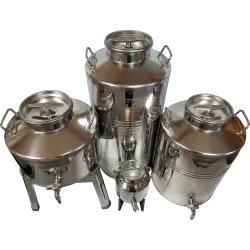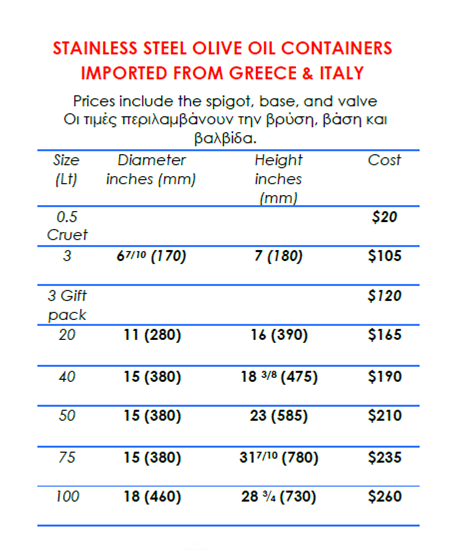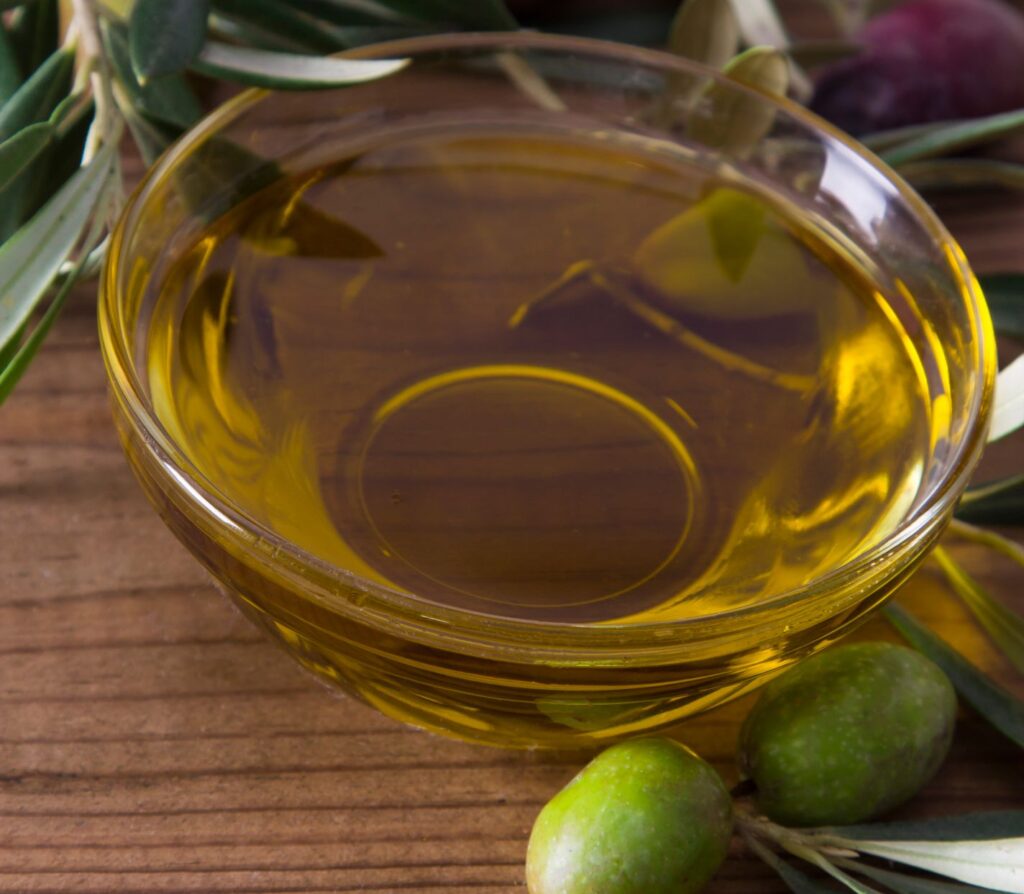
Olive oil is rich in vitamin E, monounsaturated fatty acids (at up to 83%) and antioxidants (polyphenols of olive oil: Oleic acid, olefropeini, squalene). These substances are beneficial for the health of the stomach, the duodenum and the cardiovascular system, while also helping in reducing “bad” and increase “good” cholesterol respectively. It is also considered that helps in preventing some forms of cancer and osteoporosis.

Most people think that olive oil gets you fat, however olive oil contains only 9 calories per gram, just like vegetable oils, which many of us consider to be more “light”. Also, it helps the brain work at pick efficiency and thus, helps regulating the operation of the internal organs. So instead of turning into fat, it actually helps burning fat and increasing the metabolic rate.
Extra-virgin olive oil is an expensive commodity in US, comparing to its cost in European countries, especially the ones in the Mediterranean. This is because most of it, is imported by the Mediterranean countries, so depending were in US you reside, its cost can vary due to import and shipping costs.
Greek extra-virgin olive oil is organic, since Greeks grow their olives trees the same way they ancestors did in the ancient years and therefore priceless and is imported to US mainly in galvanized tin cans or plastic bottles. Most people just keep it inside them, until they use it. But is this the right way to store your priceless olive oil? So, what are the requirements to store and preserve the olive oil? To preserve your priceless olive oil, you need to store it in a place that has a normal room temperature, not too high and not too low and protected by direct sun light and oxygen. If the temperature is too high, you risk degradation of the olive oil. Experts recommend storing the oil at 57 degrees Fahrenheit, the temperature of a wine cellar. But if you are not lucky enough to have a wine cellar, a room temperature of about 70 degrees Fahrenheit will be fine. However, too low temperature can cause the olive oil to freeze and then it will create problems while dispensing it. Direct sun light also causes olive oil to degrade, so a container that does not allow light and especially UV light to penetrate it, is very important in preserving the quality of the extra-virgin olive oil. Oxygen causes olive oil oxidation and degrades it. So, it is very important to select a container that prevents oxidation. However, don’t the tin cans comply with all the above requirements? After all, they are keeping the olive oil protected by the sun and oxygen. They do, but not for a long period.
The tin cans used to transport olive oil from Greece are galvanized. Galvanization or galvanization (or galvanizing as it is most commonly called in that industry) is the process of applying a protective zinc coating to steel or iron, to prevent rusting. Most people however, don’t know that the quality of the extra-virgin olive oil is influenced by its packing. You see galvanized tin cans are never meant for extensive storage, but merely to protect the olive oil during its transportation. Also, zinc is not considered to be a nonreactive metal and can contaminate the olive oil, degrading its quality. So, if you need to store and preserve your priceless extra-virgin olive oil, you need to use containers that are meant for extensive storage. The best containers for the job are the ones that are made of stainless steel, specifically designed to store and preserve olive oil and are air tight, to prevent oxidation. Those containers have the correct thickness, are made of nonreactive metal that does not contaminate the olive oil and they seal it from the atmosphere, preventing oxygen degrade your precious olive oil.
Unlike wine, oil does not improve with age. You’ll get the best quality and flavor from your olive oil if you use it within a year of pressing. Olive oil remains at its peak for about two or three months after pressing. As olive oil gets older, it gradually breaks down, more free oleic acid is formed, the acidity level rises, and flavor weakens. Extra-virgin oils keep better because they have a low acidity level to start with, but you should use lower-quality oils within months because they start out with higher acidity levels. As oil sits on your storage, its acidity level rises daily, and soon it is not palatable. However, keeping it inside airtight sealed stainless steel containers, slows down the break down process, increasing preservation time and helps preserving its quality.


Copyright © 2024 Kronos Shipping, Inc. | Created by Manos